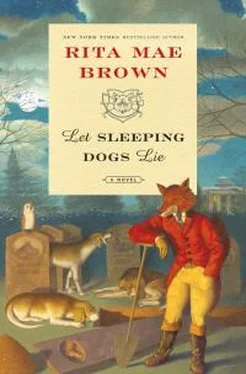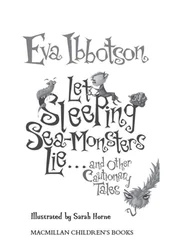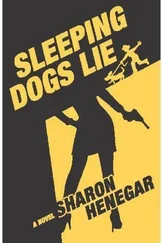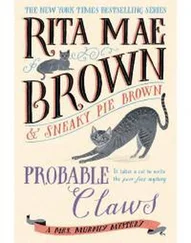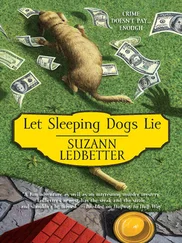“Never.” Kasmir smiled broadly.
“Good to see you all.” Crawford left.
Mercer breathed out through his nose, then said, “He lives to make us miserable.”
“Not us,” Kasmir corrected him. “Sister Jane.”
Penny knew the story. “And all because she didn’t choose him to become Joint Master.”
“How could she?” said Mercer. “He’s like a bull in a china shop. Every week she’d have to put out brush fires started by his ego. She’s a good Master and yes, his money would have been terrific and he would have spent freely but my God, we would have paid for it.”
Penny nodded. “Subtlety isn’t his strong suit.”
“The first time he met me, he looked into my eyes and said, ‘You must have a lot of white in you.’ ” Mercer’s light hazel eyes flashed.
“I hope you said, ‘Sure, my bad half.’ ” Penny looked at the wall clock.
“You know, I didn’t say anything. I figured why bother on someone that dense? You know, it is possible to be rich and stupid.”
Kasmir burst out laughing. “I know.”
“Kasmir, I never meant you,” Mercer quickly apologized.
“A man can be smart about one thing and dumb about another, or as my late wife used to say, ‘A man can be smart during the day but dumb at night.’ ”
CHAPTER 5
Wednesday, February 5 was fair, in the midthirties, and began with a glorious welcome sunrise. Sister, Shaker, Betty, and Tootie walked the hounds from the kennels along the farm road. On their right was a large pasture with stone ruins in the middle of it, a huge tree beside the ruins. The old fence line had three stout logs as a jump not too far from the ruins, all that was left of the first tiny dwelling from the mid 1780s. Horses took this log jump seriously, whereas an airy jump, some spindly sticks, often set them off.
The group walked on foot. To their left reposed a lovely apple orchard, its trees gnarled. Inky, a black fox, kept a cozy clean den here, from which she would sally forth at night for hunting as well as to visit the kennels. She enjoyed chatting with hounds as long as they were on the other side of their heavy chain-link fencing.
A huge old walnut growing at the edge of the ruins provided a spacious accommodation for Comet, a gray fox. While not as good a housekeeper as Inky, he wasn’t a total slob like Uncle Yancy, a red fox who threw everything out of his den. Even a human not well acquainted with wildlife would know whoever lived in Uncle Yancy’s den was messy.
Foxes, like people, evidenced distinct personalities and habits.
Asa, an old hound beloved by all, walked up front. He could only hunt one day a week now but he still hunted well. Then, like many an old gentleman, he needed some extra rest, the canine version of Motrin, and a bit of extra love.
“Inky, I know you’re in there,” Asa good-naturedly called as the pack walked by.
A voice from within the den hollered, “And I’m staying in.”
“Saucy devil.” Sister laughed as she heard the little yip.
On the right side of the pack, Shaker grinned. “The only thing better than being a fox on this farm would be being a hound or a horse. Then again, being a human isn’t so bad.” He looked over toward the ruins, where Comet did not stick his head aboveground. “Give any thought to breeding Giorgio?” The huntsman greatly admired this hound.
“I have. I’m not sure yet to whom or if we should take him to another club. You know, Princess Anne has some wonderful girls, old Bywaters blood.” She mentioned an exciting hunt located on the mighty Lower James River.
Sister, like any Master who breeds, studied bloodlines. Since childhood, she had favored Bywaters blood, a hound bred for Virginia’s demanding conditions. She also strongly liked Orange County blood, another Virginia hound bought from William Skinker, the Virginian who bred them, by a rich northerner, Harriman, over one hundred years ago. That old, fine blood coursed through Orange County’s kennels.
They walked on, the dirt road firm.
Tootie glanced up toward the top of Hangman’s Ridge. “Looks like it’s blowing up there.”
Betty also looked up. “Hard.”
“That’s what’s so odd,” said Sister. “Sometimes the wind will barrel right down the edge to us and other times it literally skims over our heads. You’d think after living here all these decades I’d have figured it out.”
Walking out hounds, always a high spot in the day for the staff of The Jefferson Hunt, seemed to put things in perspective. Each time Sister would walk along with her friends and hounds, she knew how lucky she was to be strong and healthy and, best of all, to live out in the country where she could open her door to a beautiful world unfolding before her. She often thought of the millions of people all over the world whose primary view was a set of red taillights in front of them only to be followed by a computer screen. And then there were how many millions of women in Africa who walked miles to a well for a bucket of water? Were taillights an improvement over such hardship? Sister feared urbanization and had no answers to counter the destruction of so many unique environments. But she did know she’d fight like the devil to protect Virginia.
“Did you read in the paper about the next bypass meeting?” Betty inquired. “This western bypass has been in contention for, what, forty years?”
“Actually, I didn’t read it,” said Sister. “I did find out from O.J. that there was an entire man’s body in the horse’s grave. I told you that, though, didn’t I?”
“You left a brief message. Well, whoever he was, God rest his soul,” Betty intoned. “Seems to me all they have to do is go through the papers from 1921 to see who went missing.”
“I don’t know but I do know we’ll be hunting from Tattenhall Station tomorrow and I will bet any of you one hundred dollars that Crawford will hunt from Old Paradise.”
“He did that last season and at the beginning of this one, and made a fool out of himself both times,” said Shaker. “He can’t be that stupid.” He laughed because Crawford would lose his pack or more accurately, whoever was hunting his hounds would lose the pack. Now on his fourth huntsman in three years, Crawford couldn’t stop from meddling, from thinking he knew more than the person he hired to hunt his hounds.
“No one’s going to bet me one hundred dollars?” Sister wheedled.
“I will.” Tootie took her up on it.
“And if you lose the bet, where are you going to find the money?” Sister smiled at her.
“Betty will lend it to me,” the beautiful young woman teased.
“Ha.” Betty loved Tootie, as did they all.
“I’ll bet one hundred dollars,” Trident offered, the young hound listening in.
“You don’t have anything worth that much,” Dragon, a few years older, taunted him. “You aren’t even worth a hundred dollars.”
At that, the pack laughed that funny dog laugh where they puff out a little air, their eyes brighten.
“Just wait,” said Trident. “I’ll show you all tomorrow that I’m worth more than one hundred dollars.”
And so he would.
Tattenhall Station, a clapboard train station with lovely Victorian flourishes, rested on the west side of the Norfolk and Southern rail line. The Western County Volunteer Fire Department sat across from this on the eastern side of the tracks. It was the westernmost fire station in the county.
Tattenhall, once busy thanks to passenger trains, had fallen into disuse, and was finally abandoned by the railway in the early 1960s. Kasmir Barbhaiya bought the station, all the land abutting it on the south side, and had added bits and pieces of more property over the last two years. His holdings, now two thousand acres, give or take, bordered such historic properties as Old Paradise to the west, Little Dalby and Beveridge Hundred to the south.
Читать дальше
